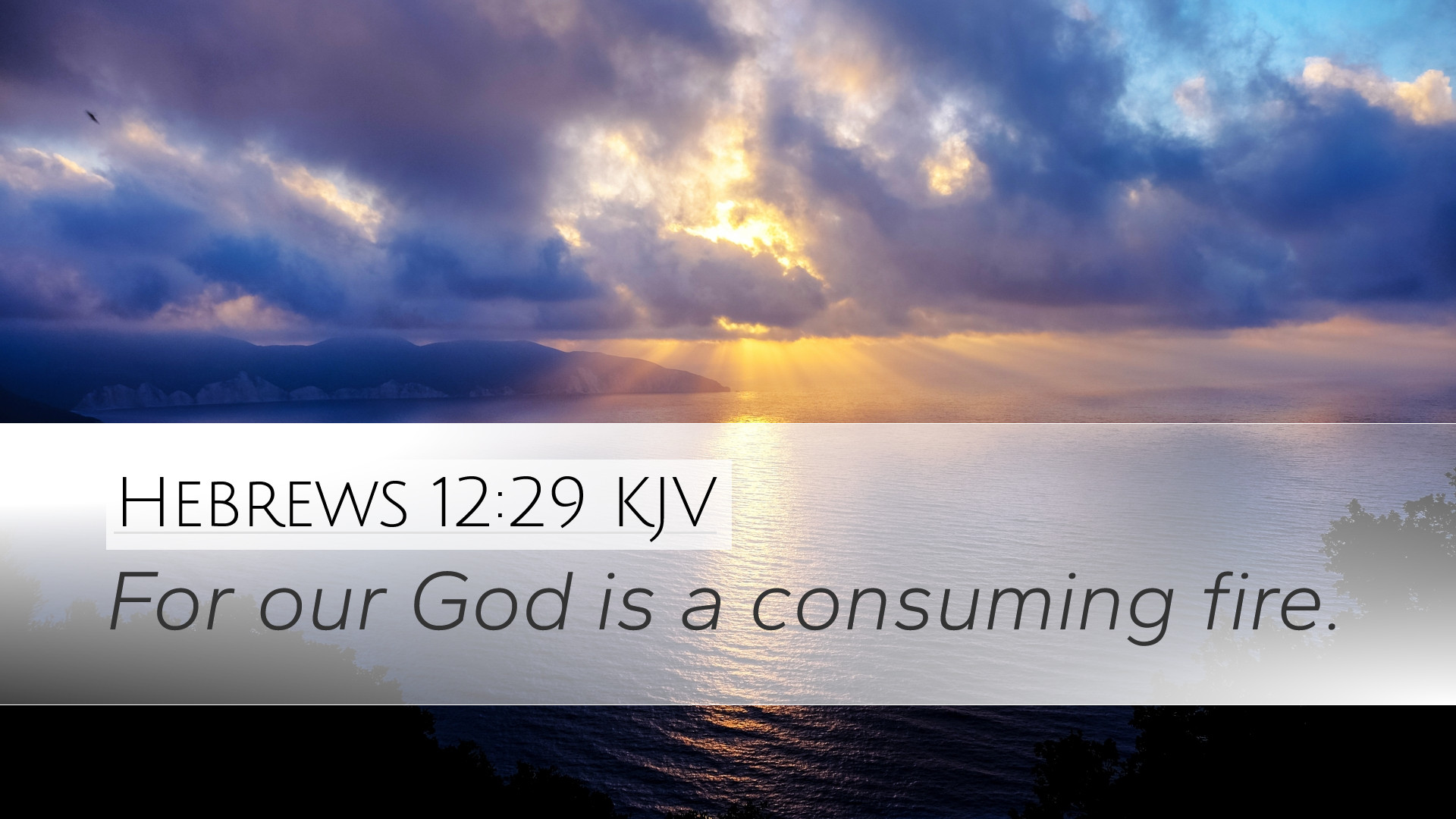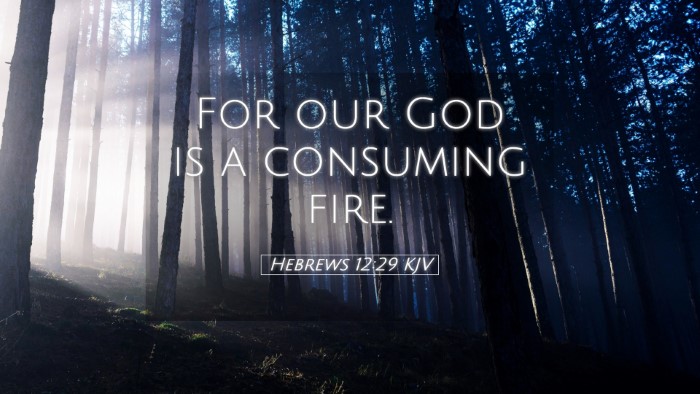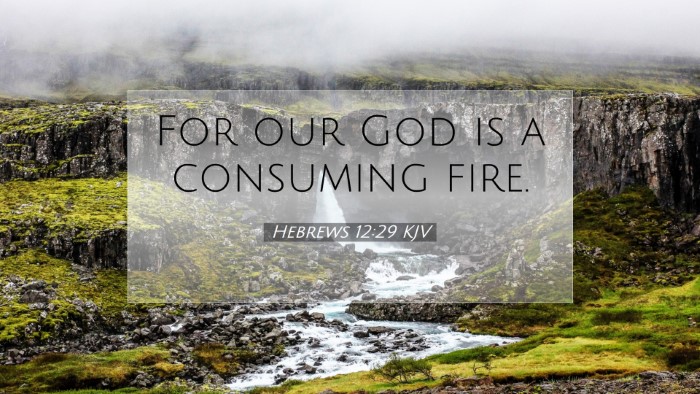Commentary on Hebrews 12:29
Hebrews 12:29 reads, “For our God is a consuming fire.” This verse encapsulates a profound theological truth about the nature of God and his dealings with humanity. The context of this statement highlights the seriousness and holiness of God, bringing to the forefront the perfect justice and mercy that intersect in divine reality.
Contextual Analysis
The author of Hebrews is addressing a community that faces persecution and temptation to return to the security of Jewish traditions. This letter presents a sustained argument about the superiority of Christ and encourages the believers to persevere in faith. The mention of God as a consuming fire serves as both a warning and an encouragement.
Historical Insights
In historical texts, fire often signifies God's presence. For instance, in the Old Testament, God revealed Himself to Moses in a burning bush (Exodus 3:2) and led the Israelites by fire at night (Exodus 13:21). Fire is emblematic of God's holiness and purity, rendering unholy things consumable. Thus, the author draws upon familiar imagery that would resonate with Jewish readers.
The Nature of God as a Consuming Fire
- Holiness: God’s holiness is underscored in this verse. The term “consuming fire” suggests that His presence is both purifying and perilous. Matthew Henry reflects on this, indicating that God's essence as fire illustrates His separateness from sin and imperfection.
- Judgment: The consuming fire also denotes judgment. Albert Barnes emphasizes that God's consuming nature signifies His capability to destroy that which is not aligned with righteousness. The imagery serves as a reminder of God’s ultimate judgment day where all deeds will be evaluated in His holy fire.
- Purification: Adam Clarke interprets fire as a metaphor for purification. Just as metal is refined in fire, believers are purified through trials, suggesting that the consuming fire represents God’s active work within the lives of His followers to bring about holiness and sanctification.
Theological Implications
The statement “our God is a consuming fire” carries significant theological weight. It touches upon the balance of God’s love and His righteousness. In the New Testament, Paul writes about the role of the Holy Spirit, whose fiery dwelling among believers signifies both comfort and challenge.
The Contrast with Mount Sinai
The preceding verses in Hebrews 12 contrast the experience of the Israelites at Mount Sinai with the heavenly Jerusalem. At Sinai, the people experienced God’s formidable presence, which was accompanied by fire, darkness, and tempest. In contrast, believers approach God now in a relational covenant through Christ, yet the author reminds them that God’s fundamental attributes remain unchanged. The fear and reverence due unto Him is just as necessary today as it was then.
Application for Believers
- Reverence and Fear: Understanding God’s consuming nature encourages believers to approach Him with a healthy reverence. The fear of God is not meant to instill dread but rather a deep respect and acknowledgment of His holiness.
- Endurance in Trials: The consuming fire can be seen in the trials believers endure, which serve to refine their faith. The trials present opportunities to cling to God, fostering deeper faith and understanding of His purpose in their lives.
- Holiness and Service: The call is towards holiness, urging the church to reflect God’s character. The consuming fire ignites passion for righteous living and selfless service among the community of faith.
Conclusion
In summary, Hebrews 12:29 encapsulates the essence of God as a consuming fire—a metaphor rich in meaning that ties together themes of holiness, judgment, purification, and grace. For pastors, students, and theologians, this verse not only signifies God’s immutable nature but also invites deep reflection on personal and communal holiness. The consuming fire assures believers that God is actively involved in their lives, refining them for His glory.
As the church contemplates this truth, they are encouraged to embrace the reality of God's consuming presence while resting in the grace afforded by faith in Christ. The consuming fire of God both cautions and calls believers to a profound experience of His love and holiness.


